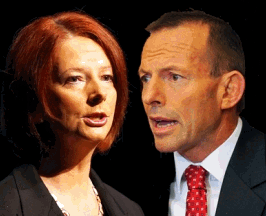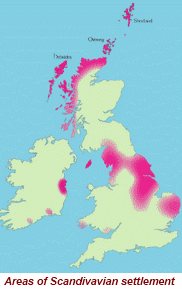
Suzanne Cory
"An economic crisis is looming for Australia, and it has nothing to do with carbon trading"

Julia Gillard & Tony Abbott
|
Editorial
- 31 May 2011 |
|
|
|
|
|
|
|
|
"An economic crisis is looming for Australia, and it has nothing to do with carbon trading" |
|
Suzanne Cory is president of the Australian Academy of Science and has been awarded a number of honours including the Royal Society's Royal Medal (2002) "In recognition of her distinguished work on the molecular basis of cancer. She pioneered the use of transgenic mice to elucidate the role of various oncogenes in lymphoid malignancies."
In the June issue of Australasian Science she opens her "Conscience" contribution with: "An economic crisis is looming for Australia, and it has nothing to do with carbon trading, food shortages, a global economic crisis or devastating floods. But it has everything to do with our citizens’ ability to understand and tackle those issues. If we do not act strongly, and act soon, Australia’s economy is sure to become less productive, less resilient and less competitive," and she goes on to note that "between 1991 and 2007, the proportion of secondary students studying biology fell from 35.9% to 24.7%. For chemistry, the number fell from 23.3% to just 18% while physics fell from 20.9% to 14.6%."
See also Jan Thomas' plea for mathematics and statistics.
And Simon Marginson, of the Centre for the Study of Higher Education, The University of Melbourne writing in The Conversation last week quotes the following statistics:
Australia spends less in public funding on universities than almost every other country in the OECD. Australia spends 0.7% of GDP and the OECD average is 1.1% of GDP.
There’s been no increase in Australian Research Council funding for about 10 years.
The Americans of course have probably overfunded their university sector. They are at 2.6% of GDP, its higher than anyone else in the world.
If you put another $500m into research you’d make an enormous difference, whereas that’s a drop in the ocean in the transport sector.
Meanwhile the government and the opposition pander to xenophobic fears,
conjuring up a horror based on the minuscule percentage of seaborn migrants
seeking asylum, virtually implying comparison with the Viking hordes overrunning
Britain from the end of the 8th and well into the 11th
century.
virtually implying comparison with the Viking hordes overrunning
Britain from the end of the 8th and well into the 11th
century.
And then the opposition would twist sovereign economic policy to the detriment of Australia's wellbeing in the medium and long-term; we even have a situation where we are enjoined to believe that the sky will collapse if the federal budget isn't returned to surplus by 2012/13. What rubbish.
Is it any wonder then that the president of the Australian Academy of Science is driven to pleading for support for:
...our primary and secondary school teachers to keep children engaged in science; investing in strong university undergraduate and graduate science programs; ensuring internationally competitive research funding; and delivering effective science communication – these are essential elements of a national approach to ensuring that Australia remains competitive economically. They are also critical for conserving our land and ensuring the health and well-being of our people.
There is a crisis looming, but it can be halted with strong investment in science at all levels.
Unfortunately there is little indication that either the Labor government or the Liberal/National Coalition are significantly interested. The legislative policies skirt around the black hole of the fundamental problems of what is: "An economic crisis looming for Australia."
But from the viewpoint of one side of politics gaining advantage with the electorate in order to maintain/regain power over the other, it's seen as of no consequence.
Perhaps, however, all is not lost, there is a rumour afloat that the recently appointed Chief Scientist, Ian Chubb, is to undertake an assessment of "the health of Australian Science".
The rumour was short on details of the methodology to be employed.
Alex Reisner
The Funneled Web